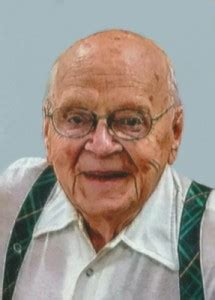A Quote by Theodora Goss
Jorge Luis Borges wrote a poem when he was in his 80s about one day writing the book that would justify him. This was long after he had become one of the great masters, a writer everyone looks up to and reveres. As artists, I don't think we ever see ourselves as done. We always think we're at the beginning . . .
Related Quotes
I first got online in the late '80s when I was an eccentric teenager in suburban New Jersey, in a town mostly interested in sports, popularity, and clothes. I was a reader, into Jorge Luis Borges, and I found, connected to, and delighted in a group of Borges scholars from Aarhus, Denmark, that I met online.
I remember I was very taken with a book called DreamTigers by [Jorge Luis] Borges. He was at the University of Texas, Austin, and they collected some of his writings and put them in a little collection. It's called DreamTigers in English, but it doesn't exist in Spanish. It's a little sampler. But that collection in English is what struck me, because in there he has his poems, and I was a poet as well as a fiction writer.
Everyone always asks, was he mad at you for writing the book? and I have to say, Yes, yes, he was. He still is. It is one of the most fascinating things to me about the whole episode: he cheated on me, and then got to behave as if he was the one who had been wronged because I wrote about it! I mean, it's not as if I wasn't a writer. It's not as if I hadn't often written about myself. I'd even written about him. What did he think was going to happen? That I would take a vow of silence for the first time in my life? "
I was an eccentric teenager in suburban New Jersey, in a town mostly interested in sports, popularity, and clothes. A fan of Jorge Luis Borges, I found a group of Borges scholars from Aarhus, Denmark - perfect strangers - whom I connected to online and immediately became enthralled by the idea of virtual communities.
My mother had died when I wrote my first book. I was twenty-seven, so it was right at the beginning of my writing life. I don't know if she had lived, if I would have done it, certainly not quite like I did. But, you can't rethink it. You wrote what you wrote, it meant something to other people, and that's your good.
There [DreamTigers by Jorge Luis Borges] were these little fablesque things, you know, dream tigers, beautiful, beautiful pieces that when you read them had the power of a long piece, but they were prose, and they had the power of poetry, in that the last line wasn't the end, it was a reverberation, like when you tap on a glass made of crystal, and it goes ping.
To think, analyze and invent, he [Pierre Menard] also wrote me, “are not anomalous acts, but the normal respiration of the intelligence. To glorify the occasional fulfillment of this function, to treasure ancient thoughts of others, to remember with incredulous amazement that the doctor universal is thought, is to confess our languor or barbarism. Every man should be capable of all ideas, and I believe that in the future he will be." (Jorge Luis Borges, "Pierre Menard, Author of Don Quixote, 1939)
[Raymond Roussel] said that after his first book he expected that the next morning there would be a kind of aura around his person and that everyone in the street would be able to see that he had written a book. This is the obscure desire harboured by everyone who writes. It is true that the first text one writes is neither written for others, nor because one is what one is: one writes to become other than what one is. One tries to modify one's way of being through the act of writing.
Jorge Luis Borges had the soapbox and the authority to complain about this myopic understanding of the duty of Latin American writers, which sometimes forecloses their unique modernism and experience of modernization in favor of a mythic past or an artificially constructed ideal national subject. So likewise in João Gilberto Noll, readers shouldn't expect samba and Carnival and football. The Brazilian national identity is not one of his primary concerns.



































